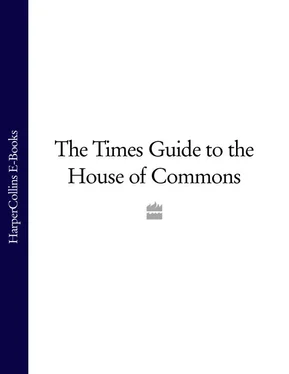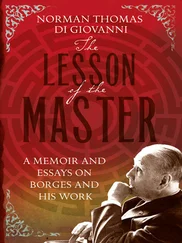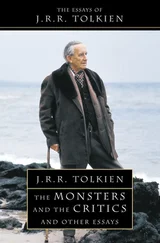The advent of the global economic crisis exposed such confidence as premature, although at first it seemed that it would deliver a landslide victory. Britain’s galloping debt levels seemed to Mr Cameron and Mr Osborne to confirm, not challenge, the need for a smaller State. A tactical decision to match Labour’s spending plans and deny Mr Brown his favoured “investment versus cuts” dividing line was abandoned in favour of a formula that “shared the proceeds of growth”, code for cuts in spending. Expenditure would grow at a slower rate than GDP for all departments except in three ring-fenced areas, health, international development and education. This formulation was itself jettisoned as the recession took hold, however, and the Tories’ economic credibility was tested.
Indeed the global nature of the crisis, and Mr Brown’s relentless use of an international stage to illustrate the need for state action, undermined the Tory case. When framed as a choice between who could best cope with the economic storms, voters cooled on the Conservatives. Mr Cameron found his party’s poll rating pegged back beneath 40 per cent, the share of the vote at which an overall majority was assured.
Throughout his leadership the party’s private polling had consistently shown Mr Cameron to be more popular than his party. When the broadcasters’ attention was on the Tory leader, the Conservative poll rating increased, when it was not they slipped back. The overall strategy of the campaign seemed simple enough: highlight Mr Cameron’s personality while delivering a message of broad reassurance on public services and economic competence.
In fact, as the long campaign ground on through early spring it became clear that Mr Cameron had overestimated his own popularity with voters while underestimating the remaining suspicion voters harboured about the Conservative brand. In avoiding a Clause Four moment with his party, and then by using the economic crisis to seek a mandate for a smaller State directly, Mr Cameron left himself open to Labour claims that he represented the “same old Tories”. It was Mr Clegg, however, who was best able to exploit the vulnerability. Voters wanting a change but not convinced about the Conservatives were offered a route out of their dilemma.
While the campaign exposed some of Mr Cameron’s faults – a tendency to substitute personality for policy, an over-reliance on a small group of confidants – his pragmatism and speed of manoeuvre served him in excellent stead for its aftermath. The manner in which Mr Cameron fashioned his coalition and then drove it through a reluctant party impressed even his enemies.
His coalition with the Lib Dems offers the chance for the late and reluctant convert to complete the modernisation of the Tories.
Francis Elliott is co-author of David Cameron: The Rise of the New Conservatives (2007)
At long last it’s OK to be a Tory
Alice Thomson
Times columnist
Who wants to be a Tory? In 2005 it was a lonely life. Even in the shires it was more embarrassing to say that you had voted blue than that you could not reverse a horse box. The Tories were in despair. They had liked the nice William Hague, the comprehensive-educated, northern lad with a pretty wife and lovely manners. It still rather hurt that the electorate had ridiculed his attempts to be more matey with his baseball caps and his 14 pints of beer.
This man seemed honourable and decent but Britain had rejected him. So they tried again. They chose an officer with four children, another charming, blonde wife and the shadow of a moustache. Iain Duncan Smith could put some backbone into the party, thought the loyalists. He would show the shallow Tony Blair how to be a gentleman.
But the quiet man soon went and Michael Howard, the former Home Secretary who promised cleaner hospitals and more school discipline, still could not make a dent in the polls.
The Tories were desperate. Who could save them from a life of slammed doors and dinner party jokes? The leadership contest of 2005 was a despondent affair. There was David Davis with his derring do and pick axe in his office and David Cameron, a Newbury boy with slicked-back hair.
As they met at the party conference in Blackpool, the mood was sombre. A few girls ran around wearing Mine’s a DD, for David Davis, T shirts. The tone seemed set. The words running through the Blackpool rock were Tory Losers.
Then something miraculous happened. A young man bounded on to the stage, with no notes and began to talk. The grassroots, who had become pale and lifeless in the arid soil, suddenly felt as though they had been watered. Soon they were nudging each other, tapping their hearing aids, looking thoughtful and clapping ecstatically.
David Cameron brought the Conservative Party back to life. When he patted his wife’s pregnant stomach at the end of his speech, the party knew that they had found their man. Here was an Old Etonian as at home in shorts as he was in plus fours, who gave them some credibility, no one sneered at him. Young women in wraparound dresses began to pour into Conservative Central Office, Oxbridge graduates were queuing for jobs as interns.
The leader wore things called Converse trainers that seemed to impress the press. He cycled to work (although there was that little hiccup when it was discovered that his chauffeur was following with his briefcase). His insistence on riding a sledge in Norway for a photoshoot was rather embarrassing but the country did not seem to mind so the grassroots were determined that they would not either. They turned a blind eye when Mr Cameron started hugging hoodies. The Heir to Blair, well that was a bit humiliating but never mind.
Onwards and upwards, the Tories were finally going places. Samantha Cameron was a working mother but she was not strident like Cherie Blair. And then there was Ivan. Mr Cameron was obviously a wonderful father to his disabled son.
It began to look rather promising. They soon started winning more council seats. The A list proved to be a blip. Then there was the question of grammar schools. Could they really accept a leader who didn’t cherish these great institutions? But they did.
Then just as they thought they might finally be in with a chance, Gordon Brown became Prime Minister and extraordinarily the country decided they liked him.
Here was the first real wobble. Had they chosen the right man? Didn’t he suddenly seem a bit young, a bit flash, a bit too toff? They should have stuck with Mr Hague. The party conference was a gloomy affair that year. Mr Major was wheeled in to provide extra support. Then young George Osborne did it. He promised to cut inheritance tax. The grassroots were relieved. They had not made a mistake, these boys knew on which side their crumpets were buttered. They would help the middle classes and wow Middle England. They had outbluffed Mr Brown, who could not now call a general election. The party was ecstatic. Mr Brown had become Mr Bean. The grassroots may have had a woman or ethnic minority candidate pressed on them but they proved to be decent chaps and chapesses. They would win.
Only, the polls changed again. By the beginning of 2010 it was clear that the Tories were not romping home. The recession had hit them hard. It was difficult to talk about GWB (General Well Being) when GDP was plummeting. People were not so polite any more. They thought the boys were a bit too aloof and distant. Their inner circle was too cliquey.
Mr Cameron sounded angry during the expenses scandal but he was not that clean either. Why should voters prune his wisteria? Who had let this happen? The grassroots felt let down by everyone now. The MPs whom they had served with scones and tea had done the dirty on them.
So they arrived at the election looking like an Eton mess, bits and pieces all jumbled together. Not really sure what they thought of their leader or their candidates or even their policies.
Читать дальше












